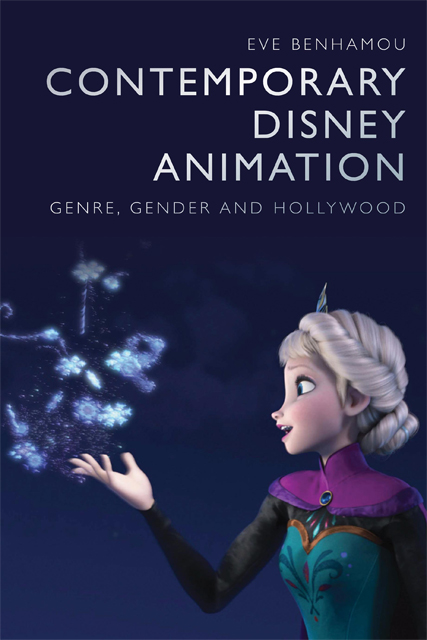7 - Animal Action Buddies: Disney’s Anthropomorphic Reimaginings in Zootopia
Published online by Cambridge University Press: 14 July 2023
Summary
Nick: So, are all rabbits bad drivers or is it just you? (Judy slams on the brakes, Nick lurches forward.)
Judy: Oops. Sorry.
Nick: Sly bunny.
Judy: Dumb fox.
Nick: You know you love me.
Judy: Do I know that? Yes. Yes, I do.
(Zootopia, Byron Howard and Rich Moore, 2016)As Zootopia’s officer Judy Hopps (Ginnifer Goodwin) smiles at her new cop partner Nick Wilde (Jason Bateman), she stomps on the accelerator, Nick puts on his sunglasses and hits the siren, and their patrol car speeds away for new adventures. This final sequence illustrates Zootopia’s multiple borrowings from a specific strand of action-adventure cinema, in which a police officer or ‘cop’ is typically paired with a dissimilar, initially antagonistic, and ultimately supportive and complementary partner: the cop buddy film. By the end of Zootopia, rabbit Judy and fox Nick swap banter expressing their affectionate partnership, knowingly flipping stereotypes associated with their colleague’s species (‘sly fox, dumb bunny’). Such a dialogue, primarily referring to their status as animals, has wider implications: Nick’s lines echo stereotypes related to femininity (‘are all rabbits bad drivers’), and the inter-species exchange evokes the configuration of numerous action cop buddy films. These parallels crystallise Zootopia’s wider generic strategy.
Zootopia stands out within Disney’s contemporary animated canon through the exclusive presence of animal characters: the anthropomorphising of action cop buddy tropes forms the basis for Zootopia’s reworking and questioning of issues linked to gendered and racial identity. Such reworking can be noticed at three levels. Zootopia’s anthropomorphic reconfiguration functions as a lens magnifying and challenging the gendered imbalance of cop buddy films, and constructions of femininity within post-feminist action-adventure cinema. This generic reworking resonates, at times ambiguously, with wider social dynamics, including constructions and understandings of race within contemporary America. The anthropomorphising of action buddy tropes also frames a more self-reflexive revising. Zootopia qualifies and re-envisions to some extent Disney’s contemporary portrayals of race relations, related to the studio’s formulaic sentimental impulses and generic predictability. This chapter examines Zootopia’s anthropomorphic reimagining of the action cop buddy film, and how this reimagining impacts on generic gendered roles, wider issues of racial identity, and Disney’s own representational and generic dynamics.
- Type
- Chapter
- Information
- Contemporary Disney AnimationGenre, Gender and Hollywood, pp. 180 - 205Publisher: Edinburgh University PressPrint publication year: 2022



